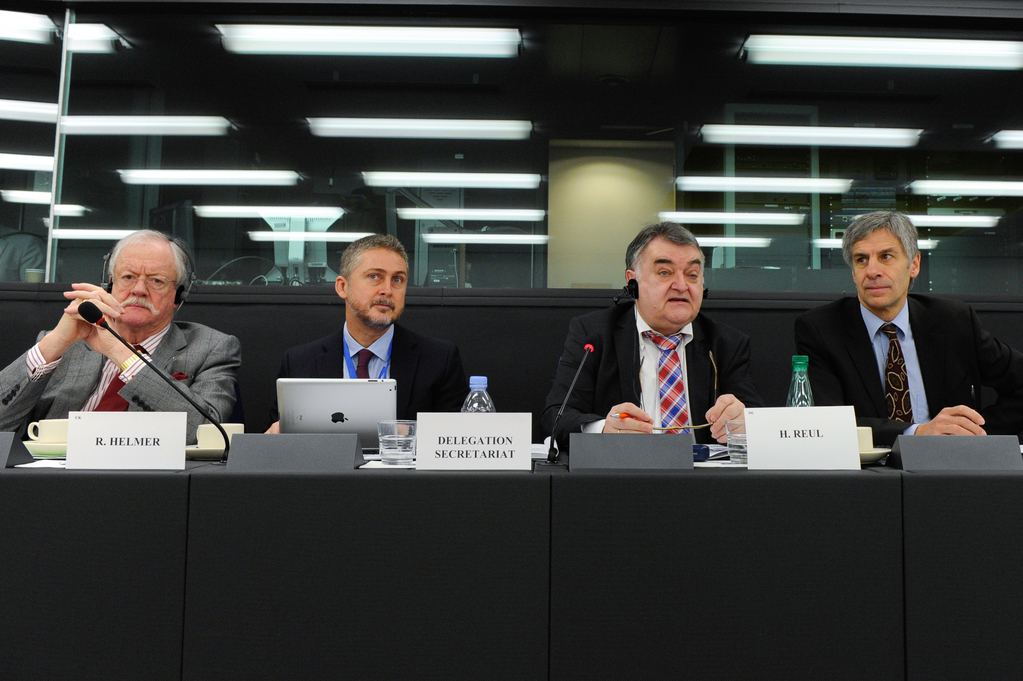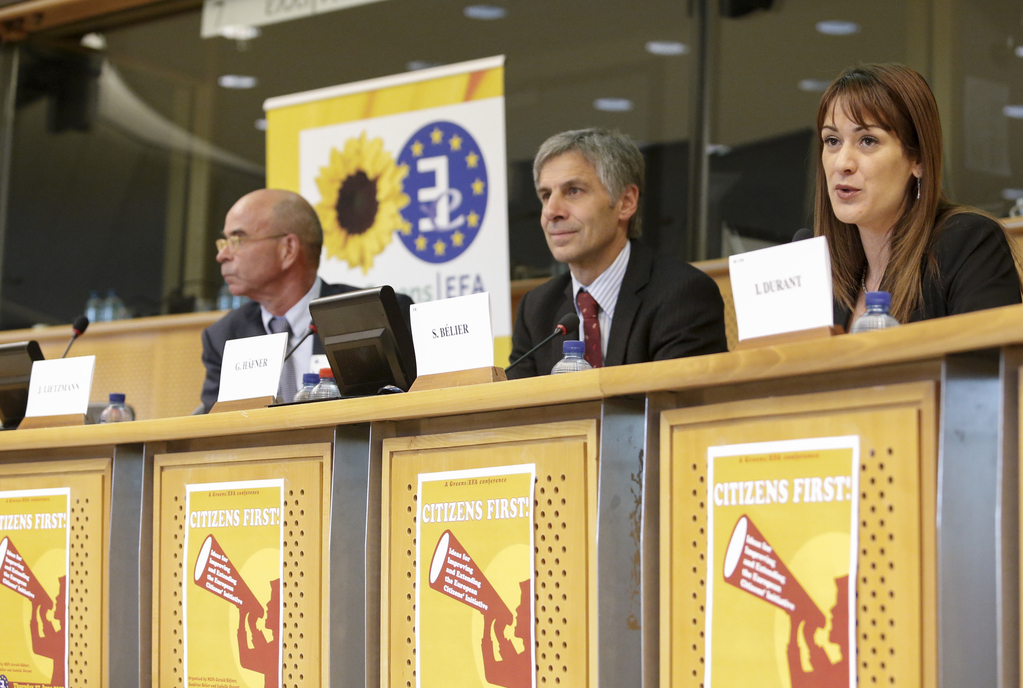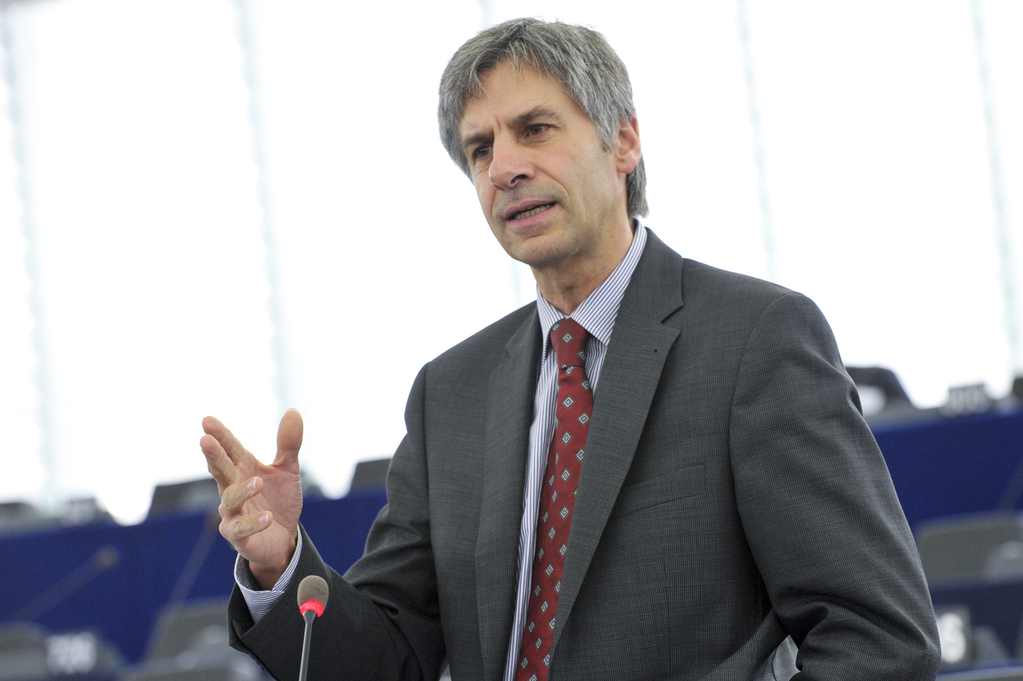Political groups
2009-2014: Group of the Greens/European Free Alliance
National parties
2009-2014: Bündnis 90/Die Grünen
Biography
Gerald Häfner was born in Munich, Germany. From 1978 to 1984 Häfner studied Germanic Studies, Waldorf Educational Methods, Sociology and Philosophy in Munich, Witten and Bochum. Before entering politics, he worked as a Waldorf teacher, author and journalist.
In 1980, he became one of the founding members of Die Grünen (Green Party). He represented Munich and Bavaria as a Member of the German Bundestag and was Chairman and Secretary General of the Greens in Bavaria. During his time in office (1987-1990, 1994-1998, 2001-2002) he was particularly involved in legal affairs, constitutional affairs and European affairs and was a member of the Special Committee on Unification.
Gerald Häfner was a Member of the European Parliament for Alliance 90/The Greens between 2009 and 2014, affiliated with the Group of the Greens/European Free Alliance. He was Vice-Chair of the Delegation for relations with the Korean Peninsula, member of the committees on Constitutional Affairs and on Legal Affairs and a substitute member of the Petitions Committee. In addition to his committee assignments, Häfner was a member of the European Parliament's Advisory Committee on the Conduct of Members from 2012 until 2014.
 18th EU-Republic of Korea Inter-Parliamentary Meeting Working Session. Roger Helmer (L), Herbert Reul (C), Gerald Häfner (R) © European Union 2014 - European Parliament
18th EU-Republic of Korea Inter-Parliamentary Meeting Working Session. Roger Helmer (L), Herbert Reul (C), Gerald Häfner (R) © European Union 2014 - European Parliament
He co-authored significant legislative texts, including a draft for a new German Constitution after German unification, a Constitution for Lower Saxony that was adopted, and he authored laws on transparency, participation, deliberative democracy, fairer elections, initiatives, referenda, and more and better European democracy.
Gerald Häfner is the co-founder of several assocations/organisations. He was one of the central figures involved in the foundation of Democracy International, an international democracy NGO, in 2011, which he served on as a board member. Häfner was also co-initiator of Mehr Demokratie e.V., Democracy International’s partner organisation and NGO for citizen participation and direct democracy. Other organisations he co-founded include the Federal Foundation for the study of the Communist Dictatorship in Eastern Germany, the Petra Kelly Foundation, Democratic Europe Now and ReThink Europe. He also was an initiator, author and rapporteur of the European Citizens’ Initiative, the first instrument for transnational citizen participation in the EU and worldwide. He co-created the Check the Democracy Navigator for all instruments of direct democracy available in Germany.
 Citizens first! Ideas for improving and extending the European Citizens' Initiative. L-R: Hans J. Lietzmann, Gerald Häfner, Sandrine Bélier © European Union 2013 - European Parliament
Citizens first! Ideas for improving and extending the European Citizens' Initiative. L-R: Hans J. Lietzmann, Gerald Häfner, Sandrine Bélier © European Union 2013 - European Parliament
Häfner is also a consultant on democracy, on citizen participation and on constitution-making to various parliaments and civil society organisations in different countries. He has been Head of the Social Sciences Section at the Goetheanum (Freie Hochschule für Geisteswissenschaft) in Dornach, Switzerland, since June 2016.
Häfner's accolades include winner of the speech competition of the members of the German Bundestag and the National Leadership Award for Political Innovation from the Economic Forum Germany in 2005.
For more information on his time as an MEP, click here.
Selected plenary speeches
During the plenary debate on 24 May 2012, Gerald Häfner spoke as a member of the Greens/EFA Group and co-author of the joint motion for an urgency resolution on the situation of North Korean refugees:
On 13 September 2012, Gerald Häfner spoke at the plenary session in his capacity as rapporteur for the Committee on Constitutional Affairs on the conclusion of an interinstitutional agreement concerning the forwarding to and handling by the European Parliament of classified information held by the Council on matters other than those in the area of the common foreign and security policy:
In the plenary debate on 18 April 2013, MEPs looked back on the first year of the European Citizens' Initiative in action. Speaking on behalf of the Greens/EFA Group, Häfner praised the success of the project while outlining the remaining challenges that the project needed to address:
At the plenary session on 19 November 2013, Gerald Häfner spoke in his capacity as co-rapporteur for the Committee on Constitutional Affairs' own-initiative report on the location of the seats of the European Union's institutions:
What's in the archives?
The fonds are mainly related to documents concerning the European Citizens' Initiative, a tool introduced in the Lisbon Treaty, whereby EU citizens can petition the EU Commission to consider legislation in an area of EU competency, being one important innovation in the democratic functioning of the European Union. The files contain different types of documents related to the legislative work for implementing the Citizens' Initiative (e.g. correspondence, contributions, analyses for implementation, working documents).
 Gerald Häfner during a plenary debate in Strasbourg, July 2011 – Modification of the Act concerning the election of the Members of the European Parliament © European Union 2011 - European Parliament
Gerald Häfner during a plenary debate in Strasbourg, July 2011 – Modification of the Act concerning the election of the Members of the European Parliament © European Union 2011 - European Parliament